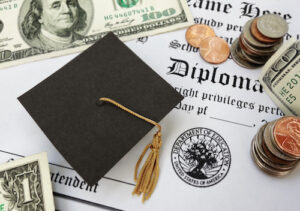
If your California bankruptcy attorney can assist you in demonstrating one or more of the following scenarios, you may be able to discharge your crippling student loan debt and have a better chance at a financially stable future. Even if your student loans cannot be discharged, a Chapter 13 filing may still be beneficial to help you handle your monthly payments. To get started, call Winterbotham Parham Teeple, a PC at 800.400.9000
Extreme hardship
Most people are aware that in exceptional circumstances, student loan debt can be forgiven. However, they may not try to take advantage of this opportunity because extreme hardship is difficult to demonstrate.
Essentially, your attorney will need to help you document your income and expenses and show that the loan load is preventing you from maintaining a minimum standard of living. You must also demonstrate you will not have the ability to make payments at some point in the future. The court uses a standard referred to as the Brunner Test to determine if you meet the qualifications of what is called a hardship discharge.
Unfortunately, the majority of bankruptcy debtors do not qualify under this standard, and a separate motion must be filed with the court to make this determination, so it is important that you seek the counsel of a qualified bankruptcy lawyer to make the right decision. If no hardship discharge is determined, your student loan repayment will survive your bankruptcy and you will need to make payment arrangements after your case is over.
Repayment Through Bankruptcy
If you do not qualify for a hardship discharge, you may still be able to benefit from bankruptcy filing. Chapter 7 will alleviate you of the rest of your debt, including credit cards, medical debts, and personal loans, making it easier to maintain your monthly student loan payments. If the student loan is not maintainable, Chapter 13 may help you repay the student loan at a monthly payment that is more affordable. Not everyone qualifies for Chapter 13, as you need to evidence you can maintain a monthly payment, so speaking to a bankruptcy attorney will be key to determining if this is a good option.
Seek The Advice Of A Bankruptcy Attorney.
If you believe you may be eligible for any of the above-mentioned situations, contact a bankruptcy attorney right away! For immediate assistance, contact Winterbotham Parham Teeple, a PC at 800.400.9000.



